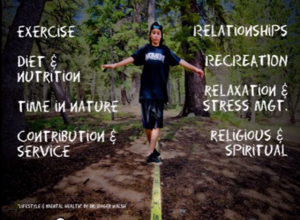| 85288 | nmac 4460.01 | Online | Fall, 2019 |
Hackschooling
September 30–October 4
Goals:
|

Lesson six considers how being digital and the hacker spirit can change education in the digital age. Contemporary approaches and educational practices were invented when the world was much bigger and empires had to be maintained. The goal of education was to standardize thought and practice in subjects that had to maintain the daily workings of a colonial system that did not have access to instant communication. While these days have passed, public education remains mired in the past. How might ubiquitous digital technologies change education for the better?
Wikipedia Work
In this lesson, you’ll begin to work with WikiEdu for additional Wikipedia training for your project. Some of this will be review at this point, but all of the training and exercises will help you become better editors. While you should have done so in L1, you must make an account on WikiEdu before you begin.
Complete all reading and training under Week 8 on the WikiEdu dashboard.
Read and View
Full citations for works here may be found on “New Media Suggested Reading and Viewing.” |
Read an excerpt from Ted Nelson’s Computer Lib / Dream Machines (pp. 301–309) and watch Sugata Mitra’s TED Talk “Build a School in the Cloud.”
Journal Post 11
Resources to review for journal posts: “Writing in the Liberal Arts”; “Writing Top Ten”; “Editor’s Checklist”; Adding a reference. Cite sources correctly using footnoted references, and link to Wikipedia entries in the text of your post.[1] |
What did you get out of the assigned texts? What do they add to your understanding of new media? What do they tell us about “being digital”? How do they employ the hacker spirit? How do they fit into your experience?
Explore
Look at a couple of the texts under the suggested readings or find your own that address education in the digital age.
Journal Post 12
What more did you learn? How does that fit into your understanding of new media? Try to bring in several different sources to support your ideas.
Reply to at east one of your colleagues’ journal posts for this lesson.
Due Date
Please have all of the above completed by Sunday, October 6, 2019. I will evaluate your this lesson the following day, email everyone a progress report, and post audio feedback at the top of the next lesson if necessary.
Help is always available:
|
Notes
- ↑ External sources are always footnoted as references; Wikipedia entries are always just linked in the text. Never cite a Wikipedia article like you would an external source.
